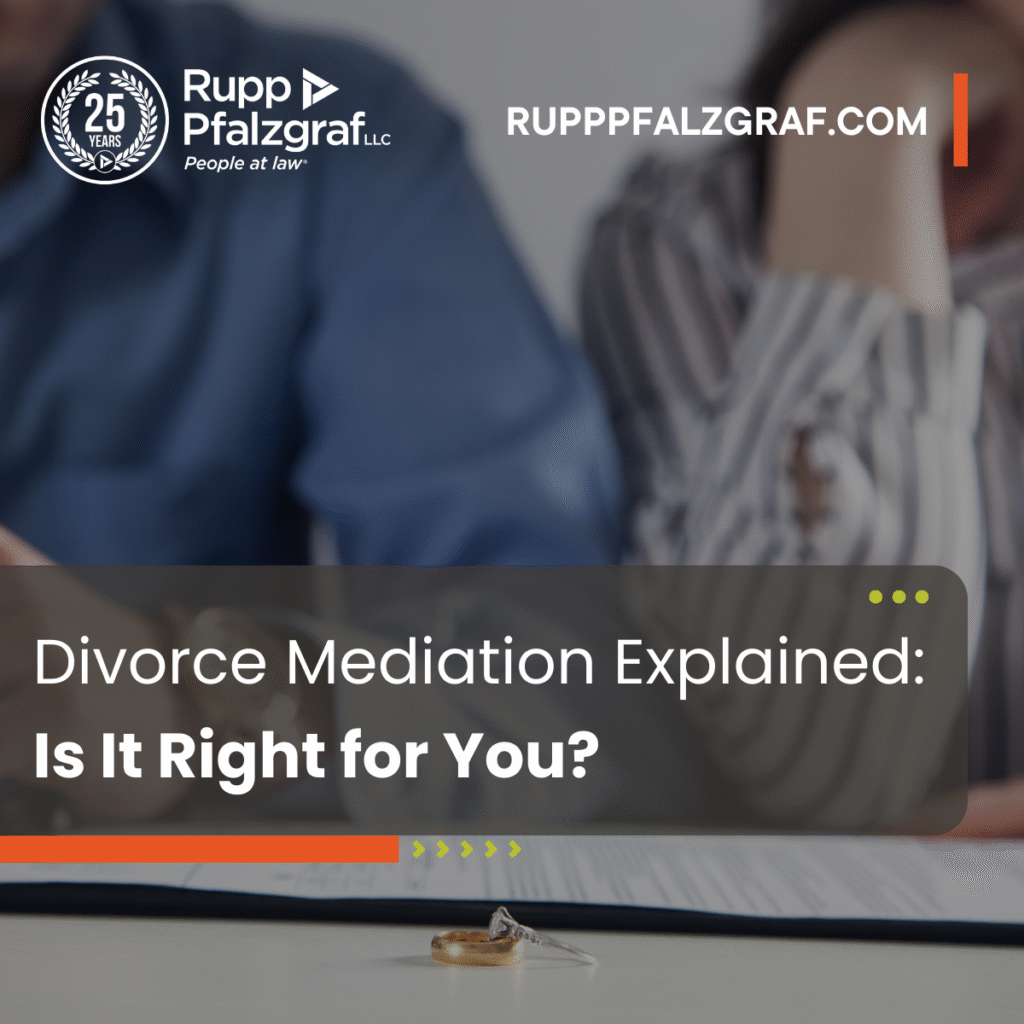
By: Paul Tortora
Divorce can be emotionally and financially draining, but not every case has to end up in court. Mediation offers a more flexible and often less stressful way to reach a resolution. While it isn’t the right approach for everyone, mediation can be a helpful option for couples who are willing and able to work through issues together as they move through the divorce process.
What Is Divorce Mediation?
Divorce mediation is a voluntary, confidential process in which a neutral third-party mediator helps spouses negotiate and resolve the terms of their divorce, such as property and asset division, child custody, parenting schedules and responsibilities, and financial support. The mediator does not make decisions or take sides; instead, they facilitate communication between the couple and guide them toward mutually acceptable agreements.
How Mediation Compares to Litigation
Litigation often involves formal hearings, court filings, and timelines outside your control. Mediation, on the other hand, gives you more control over the process, as you and your spouse work together to shape an agreement based on your specific needs and priorities, rather than having a judge decide the outcome.
It’s typically faster, more cost-effective, and helps reduce conflict, which can be especially important if you’re raising children together. Because mediation takes place outside of court, it can also offer more flexibility and privacy.
Is Mediation Right for You?
Mediation may be a good fit if you and your spouse are willing to communicate openly, cooperate with one another, and compromise to find a resolution that works for both of you. You don’t need to agree on everything, but you both must be open to the process and participate in good faith.
It might be worth considering if you’re trying to avoid a lengthy legal battle or if you want to maintain a cooperative relationship for the sake of your children. The less combative nature of mediation can also set the tone for healthier co-parenting going forward.
Mediation is not suitable for situations that involve a history of domestic violence or intimidation, or a significant power imbalance in the couple. If one party is unwilling to participate honestly or refuses to disclose important information, the process is unlikely to succeed or result in a fair outcome.
Choosing the Right Path
If you’re starting the divorce process and are unsure whether mediation is the right approach, a divorce attorney can help you evaluate your situation and explore your options. Mediation works well for many couples, but some cases may call for a more formal legal process. What matters most is finding the approach that aligns with your needs and supports the best outcome for you and your family.

